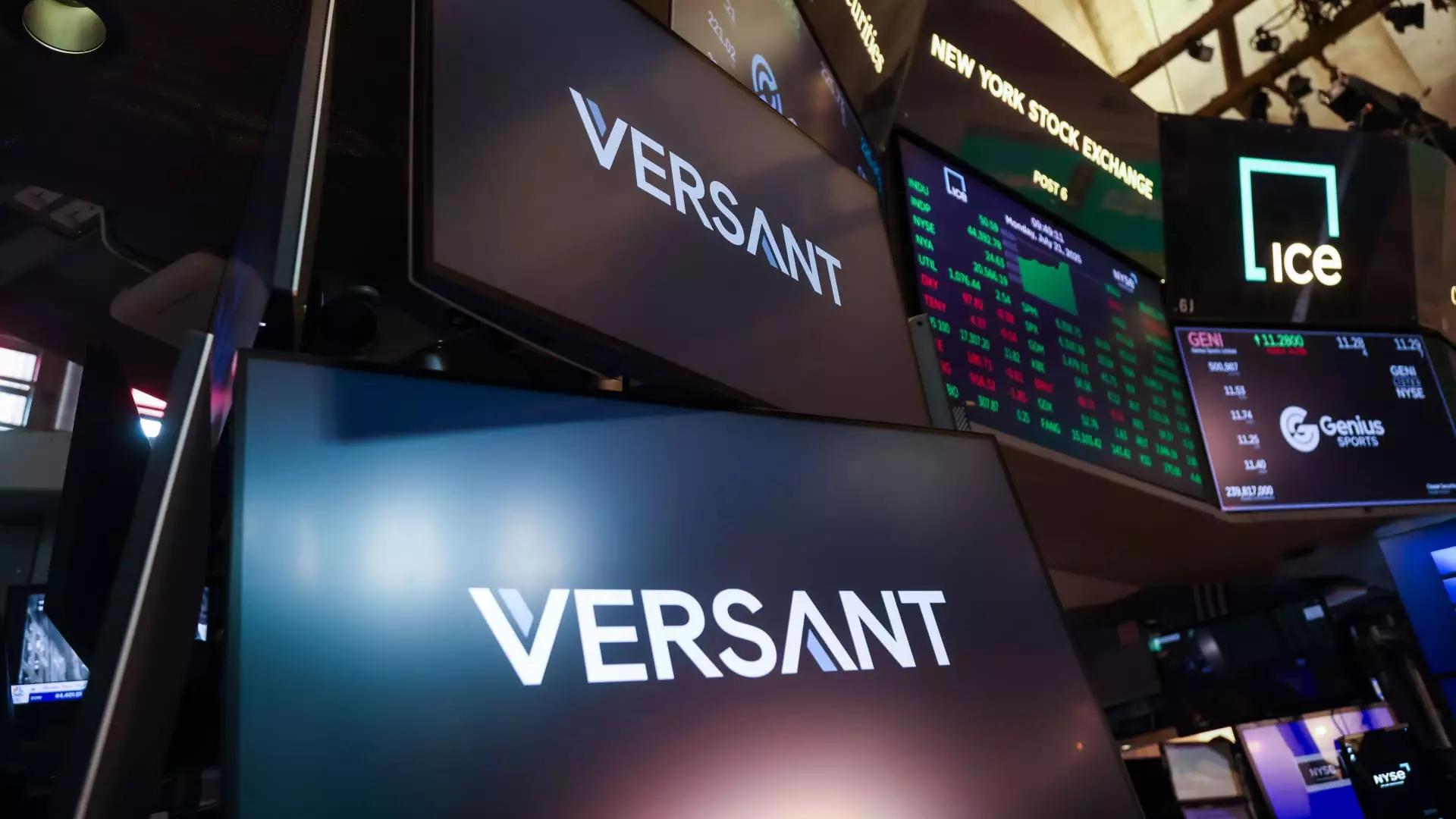The announcement of Versant, the new corporate entity set to take ownership of NBCUniversal’s cable networks and digital assets, presents itself as a step toward independence and innovation. However, beneath its language of strategic renewal lies a familiar pattern of corporate consolidation, driven less by a desire for independence and more by a need to repackage existing power structures. While the new board boasts an impressive array of backgrounds—media veterans, finance experts, legal strategists—the true face of Versant reveals it as a calculated move to further entrench Comcast’s influence under a different guise.
Rather than a genuine breakaway, this spinoff appears designed to allow Comcast to shed regulatory baggage, attract new investment, and create the illusion of a separate entity thriving on its own merits. Yet, the composition of the board underscores continuity rather than change. With former executives and business heavyweights aligned with traditional corporate interests, the so-called “independent” company more closely resembles a satellite of its former parent, sustaining the core interests that have long dictated content priorities and corporate strategy.
Board Composition: Power in Continuity?
The individuals chosen for Versant’s leadership reflect a crossroads of influence and elite corporate connectivity. Mark Lazarus, appointed as CEO, claims to be orchestrating a new chapter, but he is fundamentally rooted in the legacy of the company: having previously led NBCUniversal Media Group, his appointment signals little departure from established content paradigms. Similarly, David Novak, stepping down from Comcast’s board, brings a corporate pedigree via Yum Brands, unaligned with innovative media disruption but aligned with traditional corporate governance.
The presence of Rebecca Campbell, a Disney veteran, signals that talent acquisition leaned towards industry insiders who understand the intricacies and politics of media conglomerates. Meanwhile, legal strategist Creighton Condon’s role as counsel emphasizes that corporate maneuvering remains central to Versant’s evolution—strategic legal framing rather than disruptive innovation is the core of this enterprise.
This board isn’t assembled to challenge the status quo but to reinforce it. It is a council of continuity, with members rooted in legacy media, traditional finance, and established corporate governance. Their collective wisdom will likely steer Versant along familiar paths—maximizing shareholder value within the confines of the existing media landscape rather than pioneering new frontiers.
Strategic Implications: The End of an Era or a New Facade?
By consolidating such a team, Comcast seems intent on creating a layered corporate structure that allows flexibility and spin options without truly relinquishing control. The move to spin off NBCUniversal’s cable networks and digital assets under Versant is less about liberating these assets and more about compartmentalizing and optimizing their value for future financial engineering.
This tactic enables Comcast to maintain its grip while projecting an image of innovation and shedding regulatory baggage, especially as media watchdogs scrutinize corporate influence. The new corporate entity—steadily linked to legacy interests—will prioritize profitability and strategic acquisitions over riskier, disruptive approaches. It is a classic case of corporate rebranding masking the same old corporate playbook: domination through subtle restructuring.
Furthermore, the inclusion of board members with backgrounds in finance, consulting, and established industries underscores the plan to create a fortress of influence, rather than a hub of radical change. The design suggests that Versant’s consolidation is less about democratizing media or fostering genuine innovation and more about strengthening existing monopolistic tendencies within the media and entertainment industries.
The Center-Right Spectrum Perspective
From a center-right, liberal perspective, this move reinforces the problematic trend of concentrated media power shaping narratives and limiting competition. The corporate elite’s cloaked maneuvering under the banner of independence feeds into a broader pattern of monopolistic behavior cloaked in corporate restructuring. While the public may see a fresh, independent company emerging, the reality is an extension of the same legacy interests that have long influence over what stories are told, which voices are amplified, and how consumer choices are subtly manipulated.
This strategy jeopardizes genuine media pluralism, substituting diverse perspectives with a handful of corporate giants that prioritize profits over the public good. The overhaul pretends to be a new chapter but ultimately doubles down on old strategies—more influence for fewer, larger players. It’s a calculated game of corporate shell games designed to appear progressive, while maintaining the power that dictates the cultural and political narratives of our time.
Versant’s formation and board composition should be viewed with skepticism. Rather than heralding an era of true independence and innovation, this move represents a strategic extension of existing corporate dominances—repackaged in new branding to perpetuate the status quo. It’s a reminder that in today’s media landscape, change often cloaks itself in the language of renewal while serving the same deeply rooted corporate interests.

